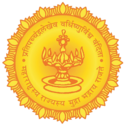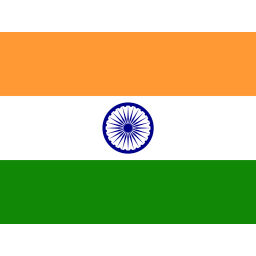Address at the launch of the Centenary Celebrations of the National Library Bandra and inauguration of the Digitalization Project of the Library
Address by Shri CH Vidyasagar Rao, Governor of Maharashtra at the launch of the Centenary Celebrations of the National Library Bandra and inauguration of the Digitalization Project of the Library at National Library, Swami Vivekananda Marg, Bandra (W), Mumbai at 5.30 pm on Saturday 9 April 2016
Advocate Ashish Shelar, Hon’ble Member of the Legislative Assembly, Shri Atul Mohile, President, National Library, Shri Deepak Padwal, Chairman, Shri Pramod Mahadik, General Secretary, trustees and office bearers of National Library, members, patrons, invitees, ladies and gentlemen,
नमस्कार आणि आपणा सर्वांना गुडी पाडवा व नववर्षाच्या खूप खूप शुभेच्छा.
आज नॅशनल लायब्ररी या संस्थेच्या शताब्दी महोत्सवाचे उद्घाटन करताना मला अतिशय आनंद वाटत आहे.
नॅशनल लायब्ररी ही संस्था वांद्रे उपनगरीचा मान-बिंदू आहे. आज ही संस्था संपूर्ण मुंबई शहराचा मान-बिंदू आहे असे म्हणणे योग्य होईल.
नॅशनल लायब्ररीच्या शताब्दी निमित्त मी ग्रंथालयाचे, तसेच ग्रंथालयाचे अध्यक्ष, कार्याध्यक्ष, विश्वस्त, आश्रयदाते व वाचकांचे मनःपूर्वक अभिनंदन करतो.
I find from the records of the National Library that the first Indian Governor of the erstwhile Bombay State, after Independence – Raja Maharaj Singh had inaugurated the building of this Library on 26th March 1950. Beginning with him, I happen to be the 21st Governor of Maharashtra. It shows that Governors may come and go, but people’s institutions, live on and on, for years and decades.
Today I was extremely pleased that the Library has launched its digitalization programme. The digitalization project is not just about converting and preserving the old books, rare books and manuscripts in the electronic form, it is about democratization of knowledge and information.
Digitalization leads to democratization; and democracy is power to the people.
One book can be read by only one person at a time. But one e-book can be read by several persons, sitting miles away from each other, simultaneously. This initiative is therefore futuristic and very important for society.
Launching the Digital India programme last year, the Hon’ble Prime Minister of India Shri Narendra Modi had said, “I dream of a digital India where High-speed Digital Highways unite the Nation; 1.2 billion connected Indians drive innovation; technology ensures the citizen-government interface is incorruptible.” (unquote)
I am sure, the digitalization programme will enable the National Library to reach out to the unreached and the poorest of the poor. Most importantly, it will revive and rejuvenate the culture of reading, especially in the young generation.
I dream of a day when all libraries in the country – large and small – will be connected to each other. I dream of a day when a youth or a student or a housewife sitting at home in the remotest tribal region will be able to read the book of his or her choice using a hand-held device.
The Digitalization is surely an affirmative step towards realizing the goal !
Ladies and gentlemen,
Mumbai is often regarded as the financial and commercial capital of India. There is no doubt that Mumbai has retained this identity in spite of the strong challenge posed by different cities and State capitals.
However, the branding of Mumbai as the financial capital of India has concealed or obscured its other equally proud identities.
Mumbai is also, for instance, the entertainment and film-making capital of India. Bollywood films are more watched and admired than Hollywood films.
Secondly, Mumbai is also the Intellectual capital of India. The city of Mumbai and Maharashtra at large, has provided leadership to the nation – both during India’s freedom struggle and after Independence.
Third, and most of importantly, Mumbai is also the cultural capital of India. The city is home to several old and prestigious institutions in the field of Art, Fine Art, Literature, Music, Theatre and Dance.
It should be a matter of pride for all Mumbaikars that the city is home to top masters in all these fields. Take the case of classical and instrumental music. You will realize that Mumbai is home to top performers in almost every area of Music !!
Ladies and gentlemen, within Mumbai, the Bandra suburb is culturally the most dynamic area of the city.
Bandra is home to the present and past masters in various fields of excellence. It is home to some of the best writers, poets, musicians, lyricists, sportspersons, film makers, artists, captains of Industry and you name it !!
The reason why I am mentioning all this is that, it is institutions like the National Library which contribute in the evolution of such great societies, which eventually produce great minds, great thinkers, thought – leaders and achievers. Institutions like the National Library are therefore vital for every society.
Ladies and gentlemen,
Thomas Jefferson had said and I quote: “Educate and inform the whole mass of the people… They are the only sure reliance for the preservation of our liberty” (unquote).
As Chancellor of Universities in the State, I am often concerned with enhancing the quality of education at all levels, especially in our colleges and universities.
I believe that we must strive for the highest quality in our educational institutions so that India can take its place among the knowledge leaders of the 21st century.
For this purpsoe, we must lay special stress on the culture of books and reading, which takes knowledge beyond the confines of the classroom. It is here that the role of public libraries assumes significance.
More than 350 years ago, well known Saint – Sant Ramdas had written, दिसामाजि काहीतरी ते लिहावे, प्रसंगी अखंड वाचीत जावे.
Which means, one must write at least a few lines at the end of every day, and at times one must read for hours, at a stretch. The lines underscore the importance of reading and writing.
Today’s generation is technology friendly and makes use of technology to chat, share messages, share stories, update status, share blogs and so on. Our libraries must reflect this change and become modern and youth- friendly centres of learning.
In my capacity as Chancellor of Universities, I am promoting the cause of organ donation. Today I want to appeal to the people to donate books and encourage book donation ! We must make book donation a movement.
Quite often we forget to return the books borrowed from the Library ! We also need to inculcate the habit of returning the borrowed books !!
Sayaji Rao Gaekwad, the Maharaja of Baroda had pioneered the development of Public Library System in India as early as 1910. He had set up several free public libraries and also encouraged vernacular libraries for the poor. We need more people like him today. We also need to encourage the young generation to read books in vernacular languages, and not just in the English language.
Libraries are pride of society, and I do feel that business houses and Ganesh Mandals should create, support and sustain libraries and reading rooms.
Ladies and gentlemen,
I would like to inform you that I have opened the gates of Raj Bhavan for the people. I want to tell you that the gates of Raj Bhavan shall always be open for you. You will have my full support and best wishes in your future endeavours.
Once again I convey my felicitations to the National Library on the happy occasion of the launch of its Centenary Celebrations and the beginning of the digitalization project and wish you all success in your future endeavours.
Jai Hind Jai Maharashtra
***



